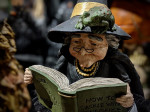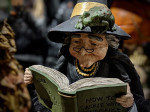
At an auction, I ended up with a book by an unfamiliar author. I had a stack of books at home to read. I certainly didn’t need another one, but as I placed it on the bottom of the stack, I wondered to myself why its author had decided on such a nondescript cover. Not beautiful. Not exciting. Not memorable.
With dozens of books in my Must Read stack, why would I even include this one?
I made the mistake of turning to page one. Five hours later, I looked at the clock. I’d almost finished the entire book!
It was a great book. Unique plot. Suspenseful, with touches of humor—certainly proof that you can’t judge a book by its cover.
But should you?
Is it really important to have an engaging cover that will attract readers?
Of course it is! Case in point, if I hadn’t accidentally come across this book, I would not have read it. There was nothing compelling about its cover.
Authors, there is so much competition out there! We cannot afford to leave it up to chance readers to pick up our books. Be intentional. Hook the reader from the moment they see the cover–and keep them reading to the end.












